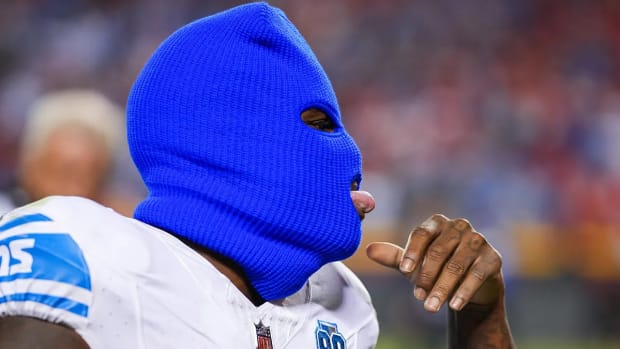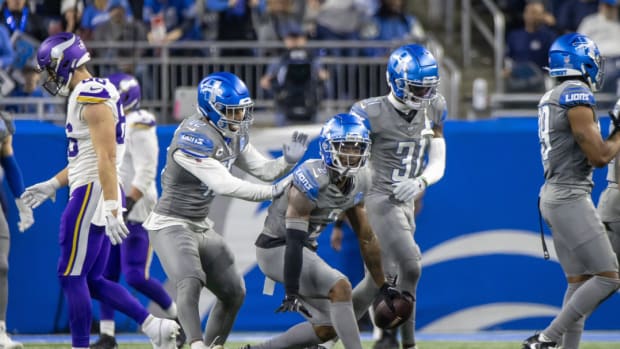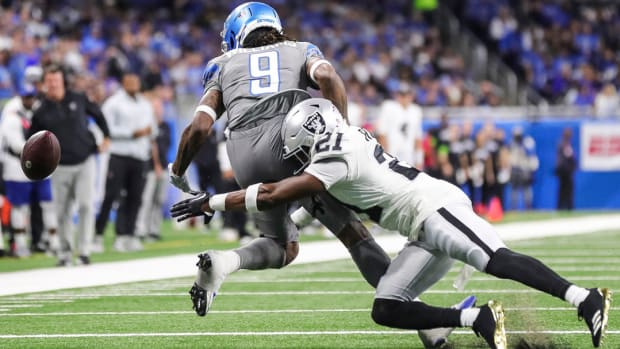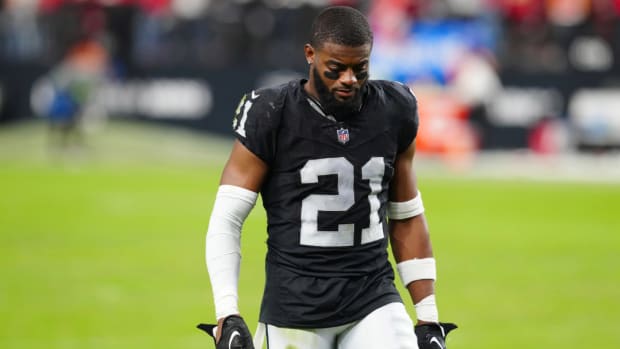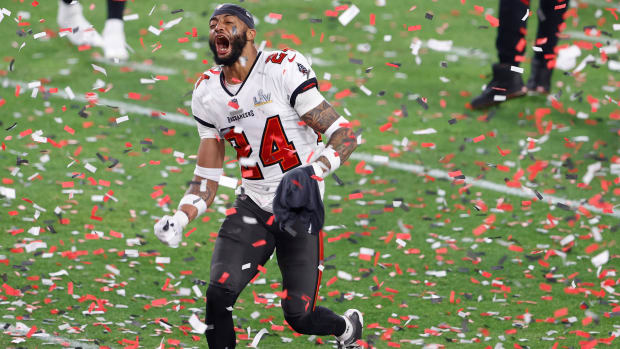Lions' Bend-But-Don't-Break Defense Appears to Be Broken
After the Lions' defense allowed 42 points to the Minnesota Vikings Sunday, there's been plenty of blame to pass around on the defensive side of the ball.
The score-fest resulted in the third consecutive game that the Lions have allowed at least 430 total yards -- the first time that has happened since their winless 2008 season.
Detroit is now second-to-last in the NFL in yards allowed per game (428.7).
At a certain point, you can't just say that a poor defensive showing is an anomaly. It's sure looking as if it's now more the norm.
Are the defensive woes the result of a lack of talent or more so the scheme?
Lions head coach Matt Patricia was heralded as a "defensive guru" when he came over from the New England Patriots in 2018.
Limiting the yards gained by opponents was never a core component of Patricia's defensive philosophy, though.
Below you will find where Patricia's defenses ranked in total yards allowed from his days as New England's defensive coordinator.
2012- 25th
2013 - 26th
2014 - 13th
2015 - 9th
2016 - 8th
2017 - 29th
If you take a close look, the last two Super Bowls won by the Patriots while Patricia was running the defense came during the 2014 and 2016 seasons.
Despite all of the Patriots' offensive greatness spearheaded by future Hall of Fame quarterback Tom Brady, they still had to have a top-15 defense -- in terms of yards allowed -- in order to win the big game.
The best way to describe Patricia's defense is "bend but don't break."
It's a popular phrase used among the football community, and Patricia executes the scheme to a tee.
In essence, it's a game plan designed around forcing opponents to methodically move the ball down the field mistake-free while minimizing the number of big plays.
There have been times where the approach has worked and plenty of times where it hasn't.
Sunday's clash with the Vikings was a perfect example of the latter.
According to Pro Football Focus, the Lions are the least aggressive team in the league when it comes to rushing the passer.
They utilize a three-man rush 28 percent of the time -- more than any other NFL squad.
When it comes to blitzing the quarterback, they send five or more rushers at a 13.5 percent clip, which is also the lowest percentage in the league.
With the Lions' heavy usage of "man" defense, the theory is that the rush will eventually get to the quarterback due to tight coverage from the secondary -- also known as "coverage sacks."
That plan has not been as effective as Patricia & Co. thought it would be coming into the season. In fact, Detroit's man defense has resulted in one sack or less in now four of Detroit's six games in 2019.
The dearth of sacks lands the Lions 30th in sack rate -- 3.98 percent on drop-back passes -- and 27th in total sacks (10).
No matter how well Detroit defenders are covering receivers, if the pass rush can't get home, eventually a man will break free.
Much to the Lions' dismay, Vikings passer Kirk Cousins had all the time in the world to sit back and find open receivers Sunday, which led to a 141.4 passer rating.
Per NFL Next Gen Stats, Cousins was only pressured on one of his 34 dropbacks -- the fewest in a game for Cousins since 2016.
Cousins has shown in the past that he can look very average while under pressure. Yet, the Lions decided not to budge on their passive approach.
On a positive note, the Lions had not allowed an opposing quarterback to generate a passer rating above 95 until facing Cousins. When the defense works properly, it can still be semi-successful.
With all of that being said, we still haven't mentioned the disturbing performance of the Lions' rush defense.
Going into the season, the defensive line was supposed to be one of the best run-stuffing units in the game.
Once Lions general manager Bob Quinn added defensive end Trey Flowers and defensive tackle Mike Daniels, the expectations only increased.
To date, though, the Lions rank just 28th in rushing yards allowed per game (139.2) and just 26th in yards allowed per carry (4.9).
Add together the anemic pass rush and porous rush defense, and it leads to another disappointing stat for the Lions: 26.7 points allowed per game -- seventh-worst in the NFL.
The goal of the bend-but-don't-break defense is to limit points, even while opponents move the ball down the field. Obviously, that has not been happening so far this season.
Maybe, I'm being more difficult on the Lions due to recency bias.
After all, the defense has made its fair share of big plays. However, when a team is struggling to execute or a scheme is just flat out not working, adjustments must be made.
If the Lions want to remain in contention for a playoff spot moving forward, something has to change. And that change needs to start with the defense.
More: "Motown Blues" Podcast





